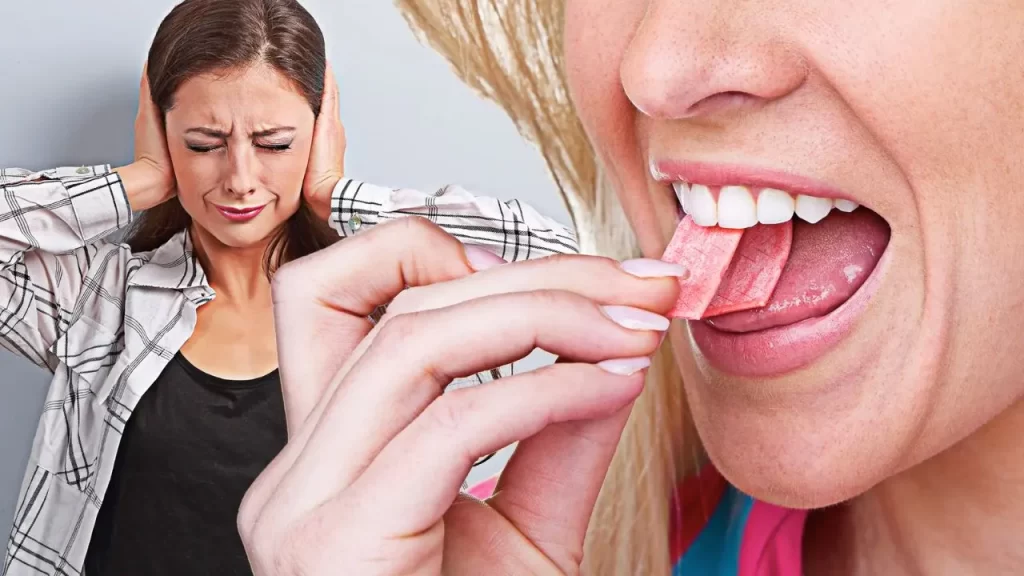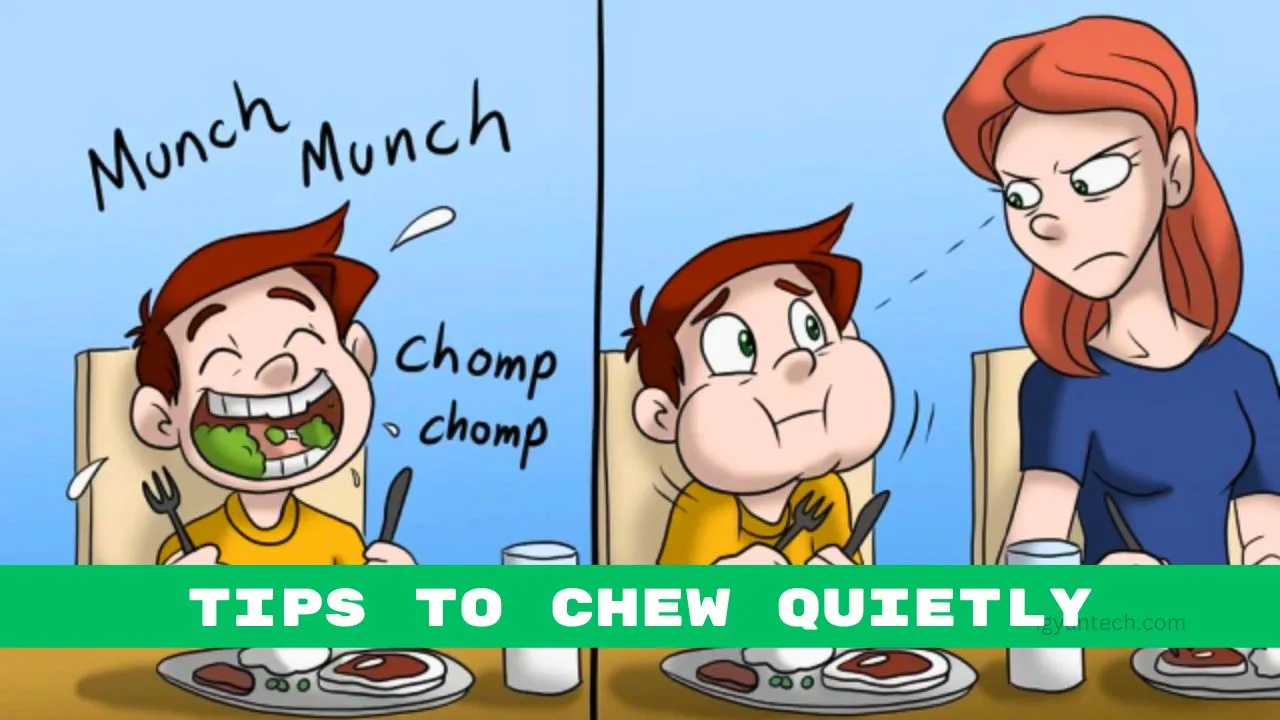Why I Chew Loud Even with Closed Mouth? Tips to Chew Quietly
In a silent room, have you noticed the loudness of your chewing, even with a closed mouth? Many can relate to this amplified sound. Today, let’s delve into why some of us chew loudly, even when keeping our mouths shut.

The Science Behind Chewing Sounds
Before uncovering why chewing can be so loud, let’s grasp the science behind it. Chewing engages our teeth, tongue, and jaw muscles in breaking down food, generating various sounds like crunching and smacking. Surprisingly, these sounds persist even with closed mouths.
Sound Waves and Resonance
The clarity of these sounds results from transmitted sound waves. As we chew, sound waves move through our teeth, bones, and tissues, creating resonance that magnifies the noise. Hence, our chewing remains audible even when our mouths are shut.
The Eustachian Tubes
Eustachian tubes play a role in the amplified chewing experience. Connecting our middle ears to the throat, these tubes regulate air pressure. However, they also create a direct path for sound to travel from the mouth to the ears. Consequently, when we chew, the Eustachian tubes convey the sounds directly to our ears, making them seem louder than reality.
Personal Factors Contributing to Loud Chewing Sounds
Now that we understand the science behind audible chewing, let’s delve into personal factors that can enhance the volume of our chewing sounds.
Sinus Issues
When congested or dealing with sinus problems, chewing may sound louder. Sound waves can get trapped in congested areas, creating an amplified effect.
Psychological Factors
Psychological factors can play a role in loud chewing. Increased sensitivity to sounds, known as hyperacusis, may occur when feeling anxious or stressed, making even quiet chewing seem overwhelmingly loud.
Jaw Structure and Bite
The way our jaws and teeth align affects chewing volume. Overbites, underbites, or misaligned teeth can amplify chewing sounds beyond the usual level.
Tips for Quieter Chewing
Understanding why we chew loudly, let’s discover tips to make our eating experience quieter and more pleasant for ourselves and those around us.
Take Smaller Bites
Reduce chewing volume by taking smaller bites. Less food in your mouth means applying less force when chewing, minimizing sound. Smaller bites also aid digestion, preventing discomfort later, and enhance your food appreciation, resulting in a more satisfying mealtime.
Chew Slowly and Gently
Avoid loud noises by chewing slowly and gently. Rushed or forceful chewing amplifies sound. Being mindful of jaw movements and avoiding teeth clenching or grinding contributes to a quieter eating environment. Breathe through your nose to relax facial muscles and reduce chewing intensity.
Exploring Practices for Mindful Eating
Discover effective methods to heighten awareness of chewing sounds and adapt habits for a quieter eating experience.
Practice Mindful Eating
Engage in mindful eating to keenly sense and adjust chewing habits. Eliminate distractions like TVs and smartphones. Concentrate on the meal, chew deliberately to reduce noise, enhance digestion, and increase post-meal satisfaction.
Maintain Good Oral Hygiene
Ensure clean teeth and gums to diminish chewing noise. Regular dental care, daily brushing, and flossing prevent plaque buildup, positively influencing how teeth come together during chewing.
Also Read:
How to prevent tooth erosion?
Stay Hydrated
Combat dry mouth by staying hydrated. Dehydration can lead to increased smacking or clicking sounds while chewing. Regular water intake and having water during meals keep the mouth moist, minimizing additional noise.
Adjust Your Eating Environment
Modify the eating environment for quieter meals. Opt for softer utensils like wood or silicone to reduce clinking. Introduce soft background music or white noise to mask chewing sounds, lessening self-consciousness about chewing volume.
When to Seek Professional Assistance
Understanding when to seek help for loud chewing concerns is crucial.
Auditory Processing Disorder
If loud chewing significantly distresses you or affects your life, consider professional help. It might be indicative of an auditory processing disorder, affecting sound processing in the brain. Consult an audiologist for assessment and appropriate treatment.
Misophonia
Suspecting misophonia due to extreme sensitivity to sounds, especially chewing noises? Seek a mental health professional’s advice. They can diagnose and manage misophonia, addressing emotional reactions like anger or anxiety.
Dental Issues
Concerned about dental-related causes of loud chewing? Consult a dentist. Assessing teeth and jaw alignment, they can recommend interventions or treatments for potential dental issues influencing chewing volume.
Conclusion
So, that’s the scoop. Chewing loudly, even with closed mouths, happens for reasons like sound science, sinus troubles, anxiety, and jaw setup. Learning these things and trying the tips can help make chewing quieter.
And don’t forget, if loud chewing bothers you a lot or you think there’s a bigger issue, talk to a pro for help.

